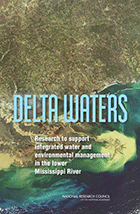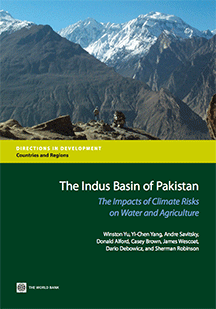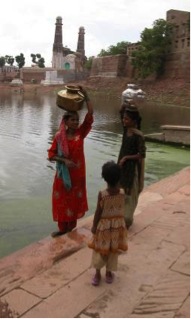AKPIA@MIT COLLABORATION WITH ACADEMIES OF SCIENCE & ENVIRONMENTAL DESIGN:
WATER, HAZARDS, CLIMATE
|

|
DELTA WATERS:
RESEARCH TO SUPPORT INTEGRATED WATER AND ENVIRONMENTAL MANAGEMENT IN THE LOWER MISSISSIPPI RIVER
James Wescoat, Study Committe Chair
(National Academy Press, 2013)
The Water Institute of the Gulf is a not-for-profit, independent research institute dedicated to advancing the understanding of coastal, deltaic, river and water resource systems, both within the Gulf Coast and around the world. Their mission supports the practical application of innovative science and engineering, providing solutions that benefit society. Those who make policy for coastal and deltaic systems, as well as managers of natural resources, need high-quality science and engineering to guide their decisions. The Water Institute of the Gulf began operations in 2012 to address exactly this sort of challenge.
Delta Waters offers advice to The Water Institute of the Gulf that it might use as part of its strategic planning process. This report focuses on strategic research to support integrated water resources management in the lower Mississippi River delta and includes international comparative assessments. The recommendations of Delta Waters promote a human and environmental systems approach to scientific research that supports integrated water and environmental resources management in the lower Mississippi River and delta, and offers ideas regarding comparative assessments with other, relevant deltaic regions around the world. This report provides input for research into common deltaic problems and challenges, identifies strategic research for The Water Institute of the Gulf, and suggests ways that the organization can utilize knowledge gained from the lower Mississippi River and delta system in developing a research program to support water management decisions in other large river/delta complexes.
|
RESEARCH ON CLIMATE, WATER & AGRICULTURE
IN THE INDUS BASIN OF PAKISTAN – 2012-2103
This study by the World Bank and Water and Power Development Authority, Pakistan, updated the Indus Basin Model and used it to assess scenarios of climate change, water use, and agricultural development in Pakistan. The study identified key hydroclimatic sentivities as well as robust aspects of the Indus Basin Irrigation System and climate adaptation scenarios.
|

|
APA, ASLA, ASID, and other design organizations recently joined to create a National Academy of Environmental Design (NAED). James Wescoat co-directs NAED’s Research program with Dean Thomas Fisher of the University of Minnesota. As a member of the U.S. National Academies’ National Research Council (NRC) Wescoat and AKPIA@MIT contributed to the following recent research activities: |
|

|
_________________________________________________________________________________________
AKPIA@MIT COLLABORATION WITH THE AGA KHAN DEVELOPMENT NETWORK (AKDN) (top) |
The Aga Khan Development Network (AKDN) has an expanding array of Built Environment research initiatives.
Recent and current involvement of AKPIA@MIT faculty and students include:
|
- AKAA – Aga Khan Award for Architecture (Geneva).
- Lecture series on the 10th cycle of awards in Europe and the Middle East (Nasser Rabbat)
- AKPBS – Aga Khan Planning and Building Services, India (Mumbai) and Pakistan (Karachi).
- Co-leadership of 2012 Design as a Catalyst for Social Change workshop and symposium in Mumbai, India (James Wescoat and graduate students).
- Publications: “Disaster-Resilient Design,” Art, Design, Architecture, 2011. Aseem Inam and AKPBS,I, “Designing for Social Change,” Domus, 2013
- AKTC – Aga Khan Trust for Culture (Geneva, New Delhi).
- Advising on the Islamic Garden project in Edmonton, Canada; and Islamic Gardens project at King’s Cross, London.
- Landscape heritage conservation and design workshops with the Nizamuddin Urban Renewal Initiative, Delhi, India.
- Publication: “Waterscapes and Water-Conserving Design,” Indian Journal of Landscape Architecture, 2009.
- DRMI – Disaster Risk Management Initiative (Dushanbe, Tajikistan).
- Establishment of a Knowledge Bank on hazards mitigation in Central and South Asia with Archnet,
and Aga Khan Documentation Center (James Wescoat and graduate students.
|


|
_________________________________________________________________________________________
AKPIA@MIT COLLABORATION WITH MIT ENERGY INITIATIVE, TATA FELLOWS, AND OTHER (top)
|
| MIT has Institute-wide research initiatives to which AKPIA@MIT is currently contributing. Examples include: |
- MITEI – the MIT Energy Initiative awarded AKPIA@MIT a grant for research on “Environmental Effects of Hydropower Alternatives in the Indus Basin of Pakistan” (Wescoat, Afridi, Humair, and Siddiqi), 2011-2013.
- Publication: A. Siddiqi, J. Wescoat, S. Humair, K. Afridi, "An Empirical Analysis of the Hydropower Portfolio in Pakistan," Energy Policy, vol. 50, pp. 228-241, November, 2012.
- MITEI – AKPIA@MIT received a seed grant to conduct research on “Coupling Water Use Efficiency and Irrigation Intensity in the Punjab Province of Pakistan” (Siddiqi, Wescoat, and UROP students).
- Publication: Nancy Stauffer, “Large scale irrigation: Understanding water, energy & crop connections,” MITEI Energy Futures, March 2013
- TATA Fellows Scholarship – the new MIT Tata Center for Technology and Design awarded AKPIA@MIT two graduate student fellowships for research on Coupling Urban Tank Restoration with High-Value Horticultural Production: A Compact Water-Conserving Design Approach (Wescoat, Mazereeuw, and graduate students), 2013-2015.
|
 
|
| |
|
| |
|
|